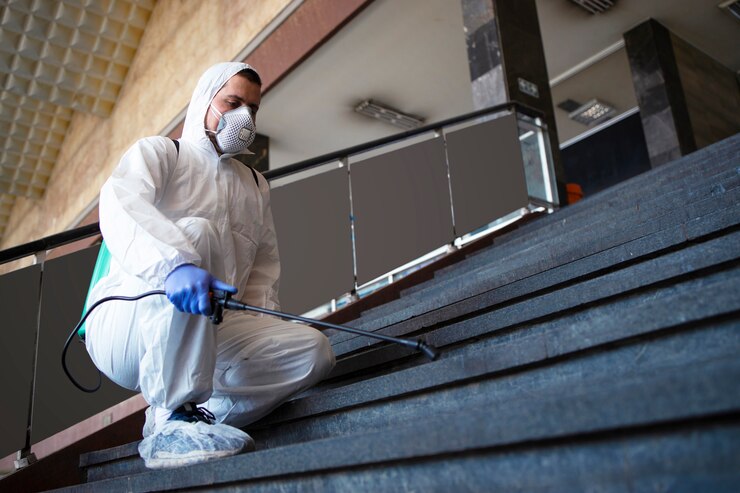Mold Inspector Certification: A Guide to Becoming a Certified Mold Inspector
Mold inspection is a vital service for ensuring the health and safety of individuals and properties. If you’re looking to pursue a career in this field, obtaining a mold inspector certification is an essential step toward becoming a qualified expert in mold identification and remediation. This guide explores the different paths to certification, the benefits of mold inspector training, and how it can pave the way for a successful career.
What is Mold Inspector Certification?
This certification is a professional credential that demonstrates an individual’s expertise in identifying, inspecting, and addressing mold-related issues within residential and commercial properties. Certified mold inspectors are trained to use industry-standard tools and techniques to detect mold, assess moisture levels, and understand the potential health impacts of mold exposure.
While there are several certification programs available, the most recognized ones are accredited by industry-leading organizations and provide comprehensive training. These programs go beyond basic mold awareness, offering in-depth knowledge that prepares you for real-world inspections and assessments.
Types of Mold Inspector Certification Programs
There are several certification programs that provide different levels of expertise in mold inspection. These courses cater to both beginners and seasoned professionals, ensuring that there’s a suitable program for everyone.
1. Certified Microbial Inspector (CMI) Course
The Certified Microbial Inspector (CMI) course is ideal for professionals with prior experience in mold inspection or related fields. This accredited program focuses on mold and bacteria identification and is perfect for individuals looking to elevate their careers.
The CMI course teaches advanced inspection techniques, including moisture detection, sample collection, and the proper documentation of findings. By completing the course, inspectors gain the skills necessary to conduct thorough inspections, interpret lab results, and offer expert advice to clients.
2. Certified Mold Inspector (CMI) Program
The Certified Mold Inspector program is one of the most recognized certifications in the industry. This course provides comprehensive training in mold and moisture detection, including hands-on learning and theoretical knowledge. You’ll learn how to perform professional inspections, understand the science behind mold growth, and interpret results from mold testing.
Certified Mold Inspectors are prepared to assess a property’s air quality, identify mold problems, and create reports that detail their findings. This certification is essential for anyone serious about a long-term career in mold inspection.
3. AIHA Mold Session Track CDs
For those who already hold this inspector certification for mold and want to deepen their knowledge, AIHA’s Mold Session Track CDs offer specialized training in mold sampling, data interpretation, and remediation strategies. These audio modules are a flexible, self-paced learning tool that covers topics essential for mold inspectors looking to enhance their expertise.
With 12 hours of content, these CDs provide insights into industry best practices from mold experts. This is an excellent resource for continuing education in mold inspection and staying updated with the latest industry trends.
4. Mold Awareness Training (M-101)
The Mold Awareness Training (M-101) is a beginner-friendly program that provides a basic understanding of mold growth, health effects, and prevention strategies. This program is designed for those new to the industry or individuals who want to expand their knowledge on mold and indoor air quality.
M-101 training is an excellent starting point for anyone interested in mold inspection. It covers essential topics such as recognizing mold growth, understanding the risks of exposure, and learning how to prevent mold from spreading.
5. IICRC – Cleaning and Restoration Certifications
In addition to mold inspection certifications, many professionals pursue certifications in cleaning and restoration. The Institute of Inspection, Cleaning, and Restoration Certification (IICRC) offers specialized courses in mold remediation, equipping professionals with the skills needed to address and remove mold effectively.
These certifications are beneficial for individuals who want to branch out into mold remediation, providing a well-rounded understanding of both inspection and mold removal.
Benefits of Mold Inspector Certification
1. Career Advancement
A certified mold inspector is in demand across a variety of industries, including real estate, construction, insurance, and environmental health. Whether you’re looking to start your own inspection business or join an established company, certification increases your chances of landing a rewarding position.
2. Enhanced Credibility
Certification demonstrates your commitment to your profession and shows that you have the skills and knowledge to conduct thorough mold inspections. Clients are more likely to trust a certified inspector with their property, knowing they are hiring an expert.
3. Expanded Knowledge and Skills
Training programs offer valuable hands-on experience and teach advanced techniques in mold detection, moisture analysis, and sample collection. These skills are essential for providing accurate inspections and ensuring that mold issues are handled professionally.
4. Flexible Learning Options
These certification programs offer flexibility in terms of learning formats. You can choose between on-site training or self-paced online modules, allowing you to learn at your own pace while balancing your personal and professional commitments.
How to Get Started
Becoming a certified mold inspector involves a few simple steps. First, select the training program that best fits your experience level and career goals. Next, complete the necessary coursework and pass any required exams. Once you’ve earned your certification, you can begin offering mold inspection services to clients and expand your business.
If you’re ready to start your journey as a certified mold inspector, take the time to research available programs and choose one that aligns with your career aspirations.
Advancing Your Mold Inspection Career
A mold inspector certification is more than just a credential—it’s a pathway to a successful career in the mold inspection and environmental health industries. Whether you’re just starting or looking to advance your existing career, mold inspection training provides the skills and knowledge needed to thrive in this growing field. Take the next step in your professional development and invest in mold inspection certification to unlock new career opportunities and provide valuable services to those in need.














Post Comment